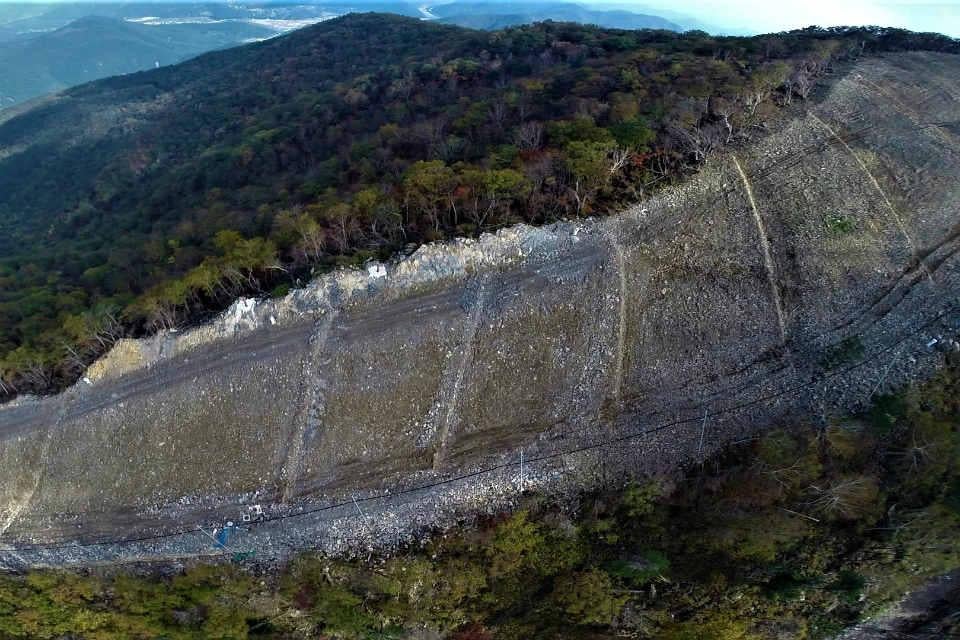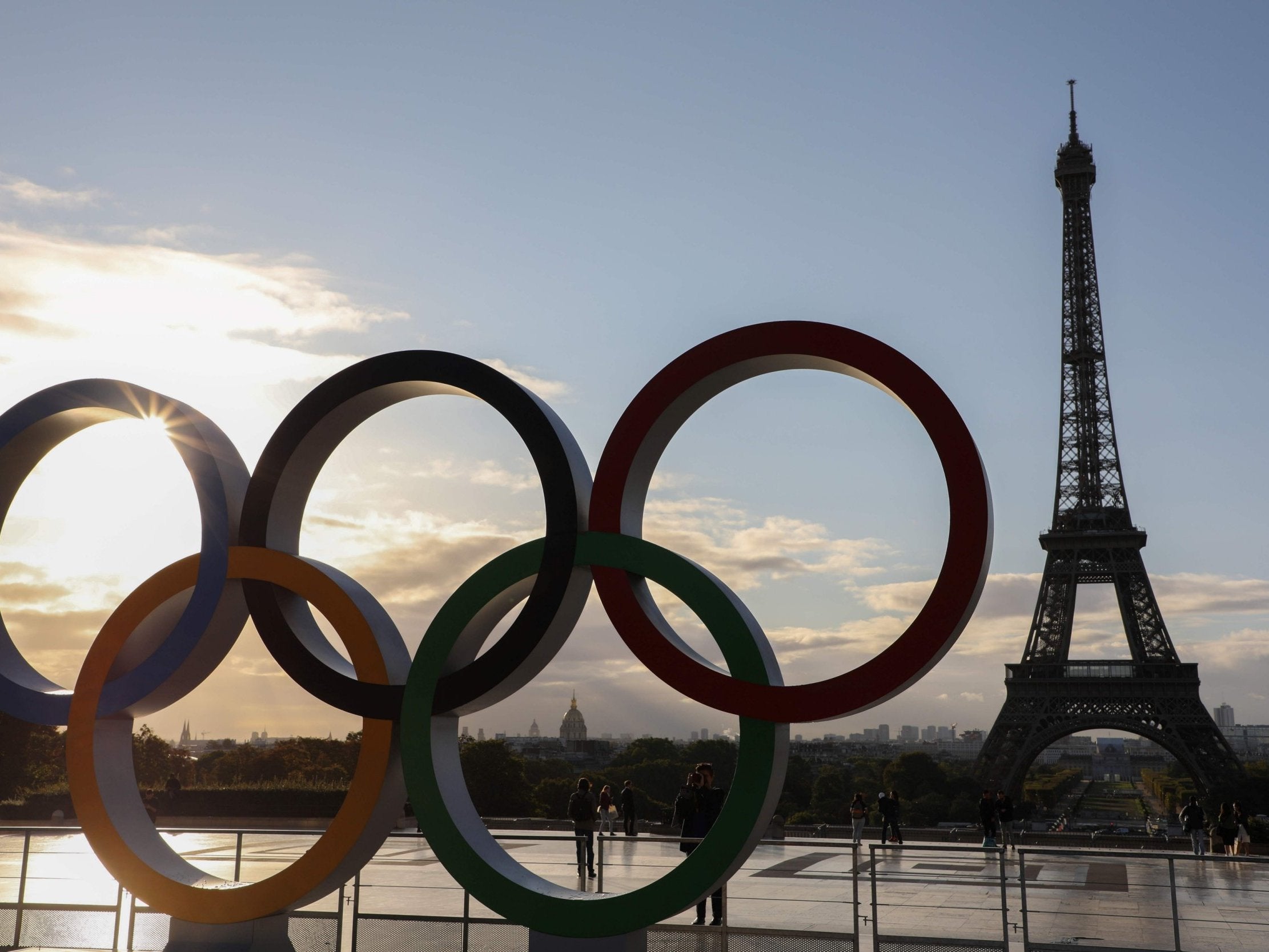‘The build-everything Games are over’: How Olympic impacts are changing the nature of the host city
Part I: Designs for Paris 2024 and Los Angeles 2028 are boldly different to Olympics of old as the strive to be sustainable challenges the very heart of the giant burden 'Olympism' has swollen into

Your support helps us to tell the story
From reproductive rights to climate change to Big Tech, The Independent is on the ground when the story is developing. Whether it's investigating the financials of Elon Musk's pro-Trump PAC or producing our latest documentary, 'The A Word', which shines a light on the American women fighting for reproductive rights, we know how important it is to parse out the facts from the messaging.
At such a critical moment in US history, we need reporters on the ground. Your donation allows us to keep sending journalists to speak to both sides of the story.
The Independent is trusted by Americans across the entire political spectrum. And unlike many other quality news outlets, we choose not to lock Americans out of our reporting and analysis with paywalls. We believe quality journalism should be available to everyone, paid for by those who can afford it.
Your support makes all the difference.One of the lesser told stories of Olympic ‘legacy’ involves an old forest on the slopes of Mount Gariwang in South Korea. A 15th century king deemed the mountain sacred to stop commoners stealing the wild ginseng which grew there, and over time its unique microclimate continued to fill the forest with a rich array of animal and plant life. It became a place revered by Koreans, and in 2008 Gariwang was awarded protected status.
In 2012, the South Korean government lifted that protection to build an Olympic ski run. Pyeongchang had just won the bid to host the 2018 Winter Games, and, in a revealing lack of forethought, organisers soon realised Gariwang was the only mountain nearby which met the International Olympic Committee’s required gradient for downhill skiing.
More than 60,000 trees were flattened to build the Jeongseong Alpine Centre. Forest restoration plans “were completely ignored” by local authorities, according to a damning report, causing extensive damage to the wider ecosystem. Of the older trees temporarily moved to be replanted after the Games, many died. “Tree transplantation is like major surgery in medicine,” the NGO Green Korea wrote, “but there was no record of each patient in the hospital.”
What’s left behind today is a scorch of black earth, as if the trees were wax-stripped from the skin of the mountain. On the face of it, the scars of Mount Gariwang are down to a unique set of circumstances, the result of arguments between state and local authorities over who should clean up the mess. But zoom out and they are also a physical reminder of how the Olympic Games can tear through a place, just like other disused venues across the planet, each one a cathedral in the desert whose brief purpose abandoned it long ago.

***
Like double denim or Tony Blair, bidding to host an Olympic Games has become drastically less popular over the past three decades. In 1997 there were 11 cities vying to host the 2004 Olympics; for 2024 there were only two.
Local populations have grown wise to the financial burden and enormous excess which comes with hosting. They have seen images of the decaying beach volleyball arena on the outskirts of Beijing, or the derelict baseball stadium left to rot in Athens. They have read headlines of vast carbon emissions of the London and Rio Games, which each topped 3 million metric tonnes – the equivalent of around 10% of the total annual emissions of countries like Ireland or New Zealand. As the IOC’s head of sustainability, Michelle Lemaitre, tells The Independent: “The world is changing. Those ‘build everything’ Games: cities aren’t looking for that anymore.”
Designs for Paris 2024 and Los Angeles 2028 are radically different from any other modern summer Olympics, because there almost aren’t any. Paris is building very little new infrastructure – just one sporting venue, the aquatics centre, and an athletes’ village in Saint-Denis where new housing is needed. “It is a bid built on sustainability,” says Lemaitre. Los Angeles, meanwhile, has made a unique promise to build nothing at all.
The IOC insists these plans show it is serious about protecting the planet, even if there were no other bids to choose from. It has introduced widespread reforms to make hosting cheaper and more efficient, and now requires host cities to measure their Games’ carbon footprint to help the next host limit their own emissions. Lemaitre insists the IOC has learned crucial lessons: ahead of Beijing 2022, they have insisted on one single contract for the dismantling and reassembly of temporary venues to avoid the disaster of Rio, where a change of mayor after the Games caused dismantling to drop off the to-do list, leaving expensively built venues to stand.
But some of this presents a new problem. Very few cities on earth can match the build-free pledge of Los Angeles. If this is to be the new standard, then the Olympics will soon become the preserve of the global mega-city. Professor of economics Andrew Zimbalist argues for LA to become the permanent home of the summer Games, to prevent cities like Rio splurging on a brand new golf course most of its citizens never wanted. “I’ve heard that idea proposed a number of times,” says Lemaitre. “But the answer to that is that the Olympic Games is meant to be shared. That’s what makes it so special.”

Lemaitre is referring, of course, to the ‘Olympic spirit’ of inclusivity, with its five rings displaying colours found on every national flag in the world. Yet somewhere along the line the Olympics lost sight of that purpose, swelling into a beast which consumes more events, more fans, more athletes, more venues, more money, and is so hungry for resources that only a handful of cities can realistically shoulder the burden.
***
So what will future bids look like? Perhaps the contest for the 2026 Winter Olympics offers us a glimpse. It features two multi-location bids: Stockholm-Åre, which plans to borrow Latvia’s bobsleigh track, and Milan-Cortina d’Ampezzo, which plans to use venues peppered across the Italian Alps. It is all part of the IOC’s ‘new norm’ policy which allows hosts to spread the load across several locations. “If there is a city that doesn’t have one specific venue, they can now hold one sport in a different city or even a different country,” says the IOC’s heady of legacy, Tania Braga. “This new flexibility can give opportunities for a different size of city to host the Games.”
“We also have the youth Olympics,” adds Lemaitre, “where we can take Olympism to cities which aren’t ready to host an Olympic Games or don’t have the infrastructure in place.” Yet this doesn’t explain how the summer Games can keep finding hosts like LA. Won’t the sustainability demands of such an extravagant event continue to dissuade potential hosts? “For me, no,” says Lemaitre. “I’d say the opposite. If you look at Paris and LA, both bids are built upon sustainability. That is what enabled Paris authorities to get the support of their inhabitants.”

With the focus shifting away from expensive venues, the IOC wants to move the meaning of Olympic ‘legacy’ – always a slightly spurious term – away from locals enjoying the new table-tennis arena they didn’t know they wanted to something more impactful. “For us it’s now more than just about how venues are used,” says Braga. “Legacy means how we put the Games together, how resources are procured, and how they can be used to encourage industries to move towards low carbon solutions.”
One example Braga shares is from next year’s Tokyo Olympics. “They are producing the medals from recycled precious metals from electronics. We know that we have an Olympic issue on electronic waste, and this plan is helping the industry in Japan create a more circular economy for electronics. Many of the organisations that have built collection places for the Games are keeping this for the future.”
Yet these initiatives do not allay the fundamental problem at the heart of the Olympics: that they are bloated and in need of deflating. Up to a third of each Games’ total carbon emissions are generated by transporting athletes, fans and officials to, from and around the host city. Spreading a Games across various locations may even exacerbate the issue. The Olympic ‘legacy’ is shifting and the pool of cities who can host is shrinking, but until the Olympics shrinks itself it will always be at odds with efforts to mitigate the environmental breakdown and climate crisis ahead.
***
Like LA and Paris, the next Winter Olympics –Beijing 2022 – also promises to be radically green. Organisers have repackaged several of the venues built for the Beijing summer Olympics in 2008 (it will be the first city to have hosted both), like the National Aquatics Centre which has been transformed into a venue for curling. The Chinese government has made bold promises about a high-tech, environmentally friendly Games powered almost entirely using clean and renewable energy sources.
But concerns have been raised over poor air quality in the city, and over the area’s lack of natural snowfall and reliance on pumping and dumping huge volumes of manufactured snow. There are also worries about venues built on a nature reserve – worries which carry a familiar ring. The wounds of Mount Gariwang’s sacred forest show the visible repercussions of throwing the world a two-week party. They remain a vivid symbol of the Olympics’ ‘bigger-and-better’ ethos of recent years, an ethos that is slowly but surely being turned on its head.

Join our commenting forum
Join thought-provoking conversations, follow other Independent readers and see their replies
Comments